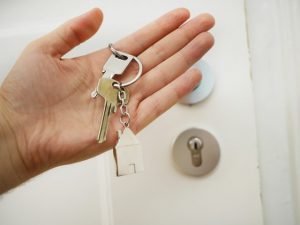Navigating Deposit Woes: What to Do When Your Landlord Refuses to Return Your Deposit

Embarking on a new chapter of life often involves the complexities of moving and transitioning between rented properties. While most landlords abide by the rules and promptly return security deposits, what should you do if you find yourself in a situation where your landlord refuses to return your deposit? Let’s delve into the steps and strategies to navigate this challenging scenario.
In this guide:
**1. Understand Your Rights and the Lease Agreement
Before taking any action, revisit your tenancy agreement. Understand the clauses related to deposit return and the conditions under which your landlord can withhold the deposit. Familiarizing yourself with your rights will empower you during the resolution process.
**2. Communicate Clearly
Initiate communication with your landlord to understand the reasons behind the refusal. Request a breakdown of any deductions and ask for evidence, such as photographs or receipts, supporting their claims. Maintaining a respectful and open dialogue can sometimes lead to an amicable resolution.
**3. Request a Dispute Resolution Service
If direct communication proves unfruitful, consider involving a third party. In many countries, there are deposit protection schemes or dispute resolution services that mediate between tenants and landlords. These services can offer impartial assessments and help facilitate a fair resolution.
**4. Document Everything
Compile a comprehensive record of your interactions with the landlord, including emails, text messages, and any other communication. Document the property’s condition upon your departure, ideally with timestamped photographs taken before you handed over the keys. This documentation will serve as crucial evidence in case legal action becomes necessary.
**5. Legal Advice
If all else fails, seeking legal advice might be the next step. Consult with a legal professional experienced in tenancy matters to assess the strength of your case. They can guide you on the best course of action and help you understand the legal options available to you.
**6. Small Claims Court
As a last resort, consider filing a claim in small claims court. This option is generally more accessible and less formal than a full-scale legal proceeding. Present your evidence and arguments before a judge who will make a decision based on the merits of the case.
**7. Review and Learn for the Future
Regardless of the outcome, use the experience as a learning opportunity for future tenancies. Pay attention to lease agreements, conduct a thorough move-out cleaning, and document the property’s condition meticulously. These practices can minimize the likelihood of disputes and increase your chances of a smooth deposit return.
Advocate for Your Rights
While a landlord refusing to return a deposit is undoubtedly stressful, understanding your rights, communicating effectively, and following the appropriate procedures can help you navigate this challenging situation. Whether through negotiation, mediation, or legal action, advocating for your rights ensures a fair and just resolution to deposit-related disputes.
Remember, you are not alone in this journey. Seek guidance, stand firm in asserting your rights, and take the necessary steps to reclaim what is rightfully yours.